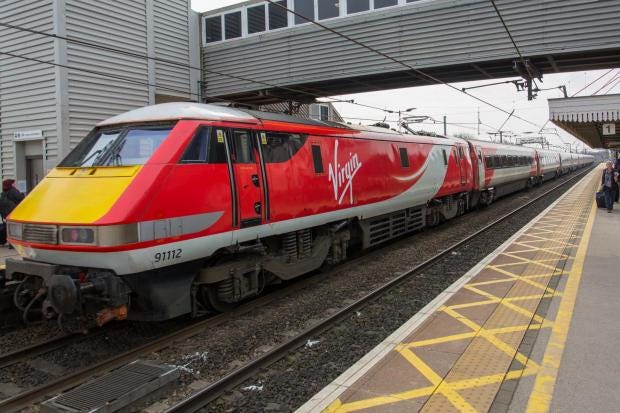 The announcement yesterday that the UK government had decided to withdraw the concession for services on the London to Edinburgh route from a joint venture between Virgin and Stagecoach has stimulated debate about the merits of private ownership versus public ownership in railways.
The announcement yesterday that the UK government had decided to withdraw the concession for services on the London to Edinburgh route from a joint venture between Virgin and Stagecoach has stimulated debate about the merits of private ownership versus public ownership in railways.
The main opposition Labour Party is committed to ending all concessions awarded to private operators since the UK railway system was fully nationalised in 1997.
The government took most railway physical infrastructure back into public ownership in 2002.
The Conservatives say the concession system is still valid. The problems the Virgin/Stagecoach joint venture experienced were due to miscalculation of costs expected during the eight-year East Coast rail franchise awarded in 2014.
Much of the debate about the future of Britain’s railway is governed by ideological factors. Labour and the left oppose private ownership as a matter of principle.
Railways should always be state owned.
Most Conservatives believe that competition and the profit-motive are essential for railway efficiency.
Their solution is finding a proper regulatory system.
Unavoidably, ideology matters. But logic can play a part.
For people to maximise value creation, they need to be able to make their own choices about buying, selling, saving and investing.
Bureaucratic management including by the state undermines this process.
But they also need supporting physical and social infrastructure from power and water to effective governance.
This should be provided as freely as possible and at the lowest-possible cost: at the very least, on a non-profit basis.
So now do these principles apply to the railway system?
Obviously, all physical assets should be freely available. And so should the operating systems that support physical assets – including relevant human skills. This is where non-profit ownership (including state ownership) applies.
But there’s scope for competition and private services in other services, particularly those involving human interaction: in the ticket offices, in the management of stations and in the provision of food and drink.
The distinction between social infrastructure, which should be freely available, and relationship services, where the market can work, is imprecise.
In services, it’s impossible to be precise about what is and isn’t tangible.
So, an ideological debate about the railway industry is possible. In fact, it’s inescapable.
But it should only apply where it’s relevant.